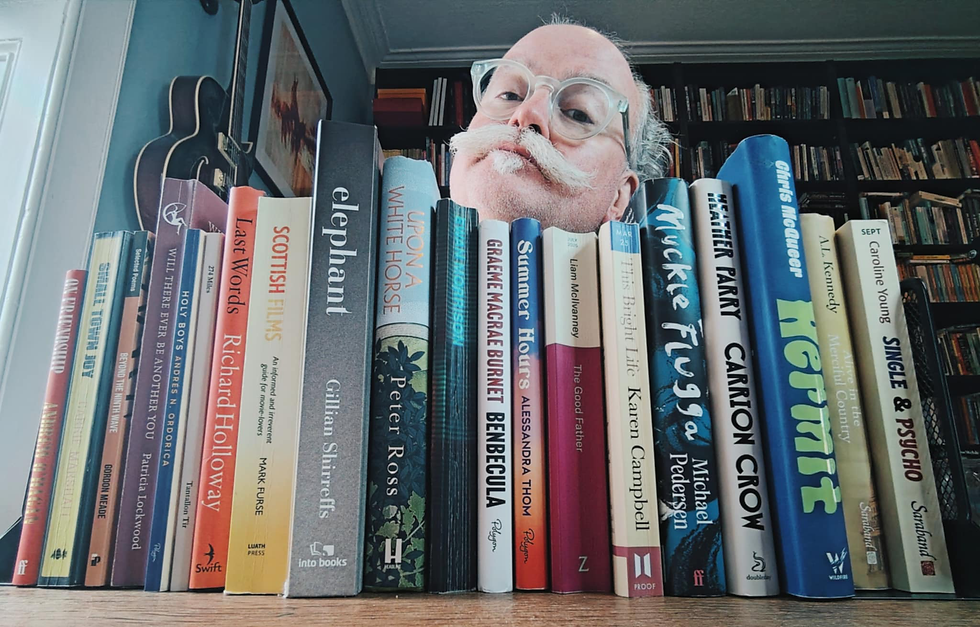The Girls are Back in Town…
- Alistair Braidwood

- Jun 23, 2010
- 2 min read
Once upon a time, in 1998, there were a group of girls from Our Lady of Perpetual Succour for Girls who went to Edinburgh to take part in the national choir finals. With this simple premise The Sopranos, one of the best novels of the 1990s, was written. Alan Warner’s third novel is an astonishing, and slightly worrying, book in the sense that he gets into the hearts and minds of the titular girls with amazing accuracy and insight. I believe that his debut Morvern Callar, while it has become the more respected text, was in a sense a warm up for The Sopranos. The female voices appear to me more realistic, less problematic, than in Morvern, at least until the voyeuristic scene in the girls local nite spot. But that’s for another day.
Set three years on from that day in Edinburgh, The Stars in the Bright Sky is the sequel to The Sopranos and reunites us with Kay, Kylah, Chell, Finn and Manda. My strongest memories from the first novel were of the blossoming relationship between Kay and Finn, and the tragic tale of Orla, but I had forgotten what an amazing grotesque Manda was, and she is front and centre here. Think of all the worst of those Daily Mail headlines about binge-drinking and single mothers and they are personified in Amanda Tassy. What Warner does so well is to show the humanity and vulnerability that lies behind the brazen and brash exterior. She is a visceral character, one that you’ll feel sympathy for if you have any heart, but would cross the road to avoid being caught in her whirlwind of (extra-cold) Guinness fueled innuendo and abuse. For those readers who meet the group for the first time they may wonder why the others put up with the behavior of Manda, but, read in conjunction with The Sopranos, The Stars in the Bright Sky is that rare thing, a female ‘gang’ novel which is about so much more than any superficial trappings and desires. Warner manages to convey the strength and complexity of the ties that are formed in formative years.
The Stars in the Bright Sky is a more sober novel than The Sopranos, and does not reach its shocking heights as a result. However, few novels do. As with all Warner’s novels it is superbly written. There are few Scottish writers who observe human nature as well as he does. The introduction of the upper-middle class character Ava initially brings an interesting new dynamic to the group, but as she begins to fall apart so does the novel. I don’t wish to spoil any plots, but I didn’t buy into the supposed difference in worldly knowledge between her and the other girls, particularly when it came to drugs. Their home town of Oban may not be London, but it’s not Balamory either. The unravelling of Ava signals a drop off in the novel, although Warner manages to pull it back with a finale that some may see as contrived, but worked for me. I would suggest that if you haven’t read The Sopranos you should do so whatever, but definitely before reading The Stars in the Bright Sky. It’s not one of Warner’s best, but it’s still better than most Scottish novels that will appear this year.









Comments